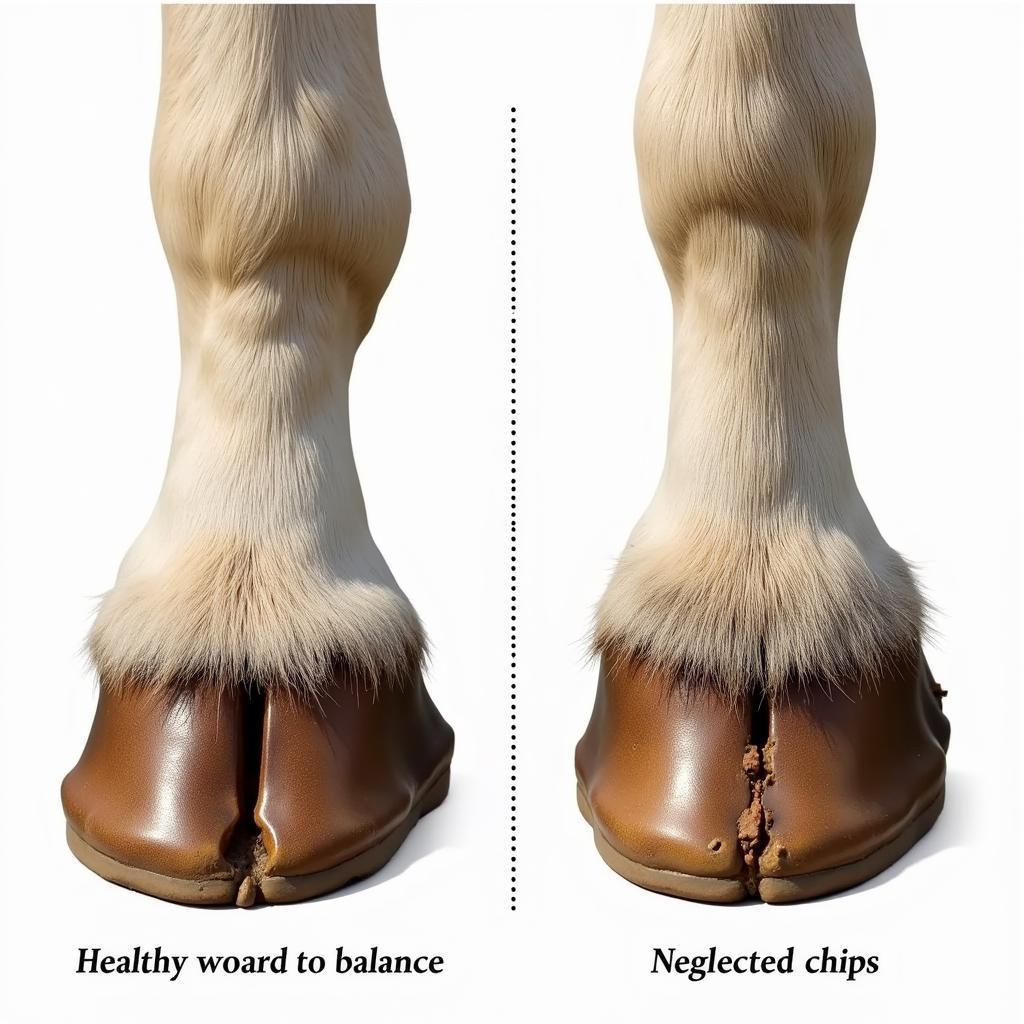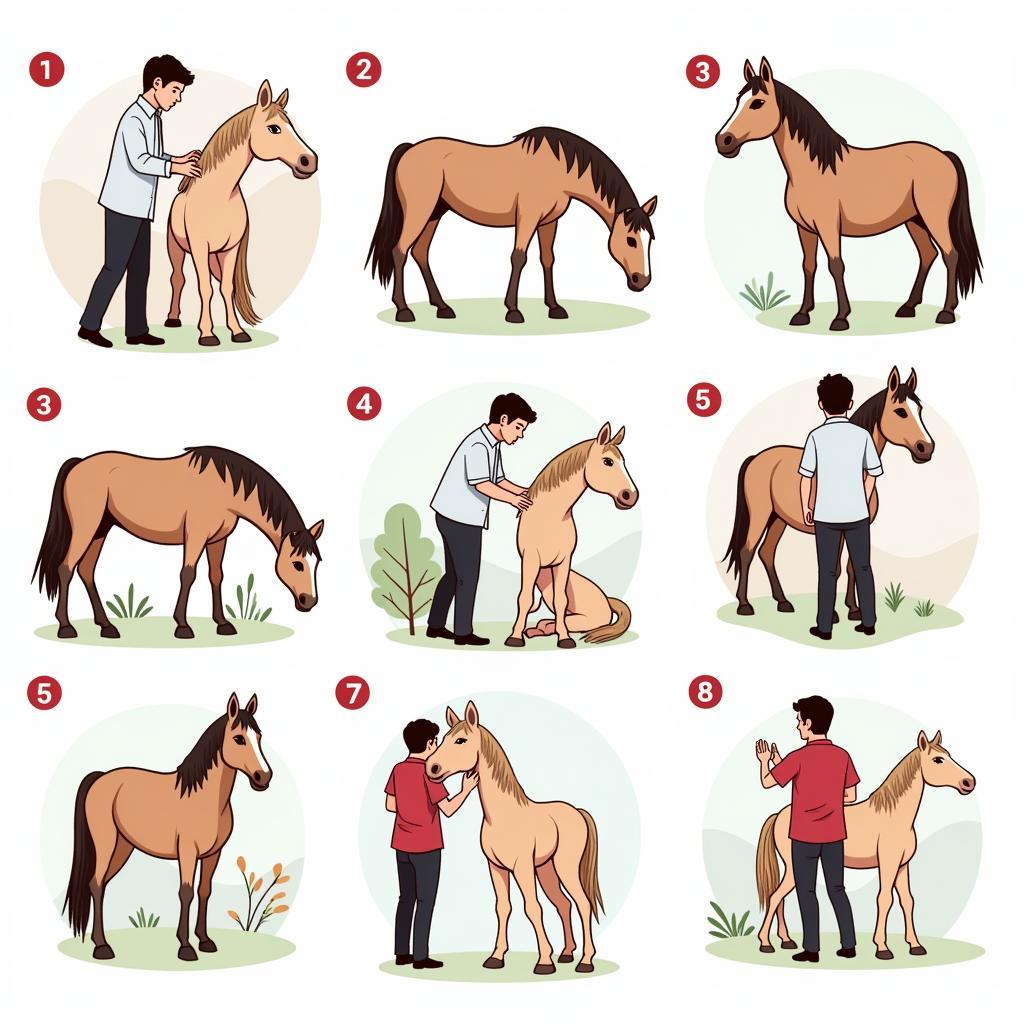The term “Imm Horse” isn’t a recognized breed or specific type of horse. It’s likely an abbreviation or acronym, and understanding its intended meaning requires more context. However, this article aims to explore various aspects of horse care, common horse-related abbreviations, and provide valuable insights for horse owners and enthusiasts. We’ll delve into important topics like hoof care, recognizing signs of illness, and ensuring your equine companion receives the best possible care.
Decoding “IMM” and Common Horse Abbreviations
While “IMM horse” isn’t a standard term, many abbreviations are common within the equestrian world. Perhaps “IMM” refers to a specific discipline, a horse’s registration status, or a health condition. Let’s look at a few possibilities. “IMM” might be short for “immunized,” referring to a horse’s vaccination status. It could also relate to “intermittent management,” a practice involving rotating horses between pasture and confinement. Another possibility is “individual medical management,” signifying tailored healthcare for a specific horse. If you encountered “IMM” in a particular context, providing that context would help clarify its meaning. A good horse trimmer is essential for proper hoof care.
Understanding the Importance of Hoof Care
Regardless of what “IMM” signifies, proper hoof care is crucial for every horse. Regular trimming and balancing are essential for maintaining soundness and preventing lameness. Ignoring hoof care can lead to a cascade of problems, impacting a horse’s mobility and overall well-being. It is important to know how often do horse hooves need to be trimmed.
 Benefits of Regular Hoof Trimming
Benefits of Regular Hoof Trimming
Common Horse Ailments and Their Signs
Being able to recognize signs of illness in your horse is a critical part of responsible ownership. Changes in behavior, appetite, or gait can indicate underlying health problems. Knowing what to look for can help you address issues early and potentially prevent more serious complications. You should check out our horse hoof trimming kit for a convenient all-in-one solution.
Recognizing Signs of Distress in Your Horse
- Changes in appetite: A sudden decrease or increase in food intake can be a red flag.
- Lethargy: If your horse seems unusually tired or uninterested in its surroundings, it could be a sign of illness.
- Changes in manure: Abnormal consistency, color, or frequency of bowel movements can indicate digestive issues.
- Lameness: Any signs of limping or favoring a limb require immediate attention.
- Respiratory issues: Coughing, nasal discharge, or difficulty breathing are all cause for concern. It’s also important to know the signs a horse was trimmed too short pictures.
 Conducting a Horse Health Check
Conducting a Horse Health Check
“Regular hoof care is like preventative maintenance for a car. Ignoring it can lead to much bigger problems down the road,” says Dr. Emily Carter, Equine Veterinarian.
Investing in the Right Horse Hoof Trimming Tools
Having the right horse hoof trimming tools makes a significant difference in providing proper hoof care. Using high-quality tools ensures precision and safety, both for you and your horse. Invest in a durable set of hoof nippers, a rasp, a hoof knife, and a hoof pick.
“Using the right tools is half the battle. It makes the job easier and helps you achieve the best results for your horse’s hooves,” advises John Miller, Certified Farrier.
In conclusion, while the meaning of “IMM horse” remains unclear, understanding various aspects of horse care is paramount. From recognizing signs of illness to investing in proper hoof care tools, your commitment to your horse’s well-being is crucial. Regular hoof maintenance and early detection of health issues are key to keeping your equine companion happy and healthy.
FAQ
- What does IMM horse mean? As discussed, the meaning isn’t clear without more context.
- How often should I trim my horse’s hooves? Generally, every 6-8 weeks.
- What are signs of a sick horse? Changes in appetite, lethargy, abnormal manure, lameness, and respiratory issues.
- What tools do I need for hoof trimming? Hoof nippers, rasp, hoof knife, and hoof pick.
- Why is hoof care important? It prevents lameness and ensures overall soundness.
- Where can I learn more about horse care? Resources like Justus Horses USA offer valuable information.
- What should I do if my horse is showing signs of illness? Contact a veterinarian immediately.
When you need support, please contact us at Phone Number: 0772127271, Email: [email protected] or visit us at QGM2+WX2, Vị Trung, Vị Thuỷ, Hậu Giang, Việt Nam. We have a 24/7 customer service team.